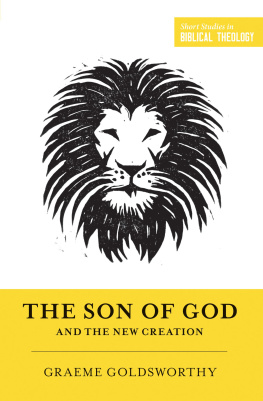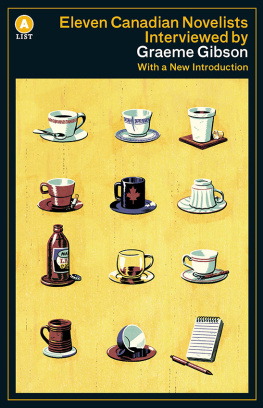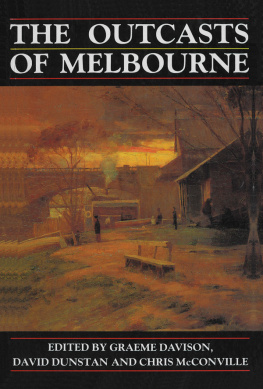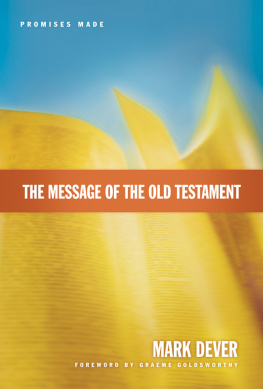The Punishment Response
The Punishment Response
Graeme Newman
Second Edition
With a new introduction by the author
First published 2008 by Transaction Publishers
Published 2017 by Routledge
2 Park Square, Milton Park, Abingdon, Oxon OX14 4RN
711 Third Avenue, New York, NY 10017, USA
Routledge is an imprint of the Taylor & Francis Group, an informa business
New material this edition copyright 2008 by Taylor & Francis.
Copyright 1985 by Graeme Newman.
All rights reserved. No part of this book may be reprinted or reproduced or utilised in any form or by any electronic, mechanical, or other means, now known or hereafter invented, including photocopying and recording, or in any information storage or retrieval system, without permission in writing from the publishers.
Notice:
Product or corporate names may be trademarks or registered trademarks, and are used only for identification and explanation without intent to infringe.
Library of Congress Catalog Number: 2008019276
Library of Congress Cataloging-in-Publication Data
Newman, Graeme R.
The punishment response / Graeme Newman; with a new introduction by
the author. -- 2nd ed.
p. cm.
Originally published: 2nd ed. Albany, N.Y.: Harrow and Heston, c1985.
Includes bibliographical references and index.
ISBN 978-1-4128-0784-5
1. Punishment. I. Title
HV8688.N495 2008
364.6dc22
2008019276
ISBN 13: 978-1-4128-0784-5 (pbk)
To the Memory of Two Mothers, Maisie and Elsie
Although much of this book is lightly historical and descriptive, it was written with a definite purpose: to search for a morality in this relativistic age. It has been a very painful process, and it is not until the last chapter, when I try to fly out of the pleasant mist of historical and scientific detail, that my pursuit becomes truly serious. Of course, one cannot find morality in one little book. But one can set the groundwork for the search, and it seemed to me that punishment was a good place to start.
The final chapter represents the bare conclusions at which I have arrived. I am aware of the highly schematic, speculative nature of the argument that I have outlined and that many of the views are, perhaps, shocking to some. I have tried to follow Norman Brown's example, to have the courage to pursue ideas to their logical, even if apparently outrageous, conclusions. In this regard, I am pleased to thank my former professor, Philip Rieff, for having helped me rediscover Freud's writings on culture. And among the many works I have used, Sir Leon Radzinowicz's History of English Criminal Law stands out as an indispensible source.
Once again, I thank my colleagues at the Graduate School of Criminal Justice and Deans Vincent O'Leary and Donald Newman, the University at Albany, for providing near perfect conditions for scholarly endeavor. Jack Kress, Ernest van den Haag, Bob Meier, and Joan Newman assiduously reviewed the manuscript, and I have benefited greatly from their helpful criticisms. My students also have had considerable input in the sharpening of my ideas. I thank them all.
The editing process has been made painless under the easy hand of Dick Heffron and the excellent copy editing of Dorothy Hoffman. Jo Anne DeSilva has typed and retyped the manuscript with an ease that I take too much for granted. I thank her deeply.
GRAEME NEWMAN
Albany, August 1977
Foucault's challenging classic Discipline and Punish appeared in English only just as The Punishment Response was published. However, when I wrote this book, I was strongly influenced by Foucault's other writings, especially Madness and Civilization. In my view, Foucault remains the most challenging writer on punishment.
There are points of agreement and of divergence between Discipline and Punish and The Punishment Response. We agree as to the political and moral functions that punishment has fulfilled throughout history, especially the tendency more and more to its abstraction and symbolic representation. However, the full import of Foucault's position has not been properly understood because of his less than forthright exposition. The sensational opening description of the drawing and quartering of Damiens seduces the gullible reader into believing that what we have today has to be better than that. My reading of Foucault suggests that he was not at all that certain. He argues, using a metaphor derived from Bentham's Panopticon, that punishment has overflowed its banks, reaching out to all people in a "Panoptic" society. Punishment, through its transformation into discipline has produced a society in which all people are highly disciplined, and in which prisons are the mere reflection of this state of surveillance.
The thesis that readers of Foucault have subsequently ignored is that the total amount of punishment in society today may be far ; far greater than it was during the periods of public punishments like that of Damiens. While it may be said that we find bodily punishments more repulsive, and more intense as punishments, the inescapable thesis in Foucault is that it is not altogether a good thing that we have developed this "disciplined" society; that we have paid a high price for this "progress."
I now think that I did not fully understand this point when I wrote The Punishment Response. Indeed, in a couple of places, I remarked with some confidence, that we had indeed made progress in our treatment of criminals. Although I was aware of the difficulty of the word "progress" when applied to civilization, I did not fully realize the import of this assumption in regard to punishment. Having read Discipline and Punish I looked further into this problem, and I began to pursue the implications of taking the opposite position-that is, that no progress had been made at all. I came up with some startling conclusions which were spelled out in Just and Painful: A Case for the Corporal Punishment of Criminals.
A point on which I was criticized in the first edition was my ambiguity concerning the principle of deterrence. My equivocation on this issue arose from two sources. First, there is ambiguity within the notion of retribution. Ernest van den Haag has argued that all punishment, including retribution, is essentially deterrence, and I think that when it's all boiled down, this is probably right. However, there are degrees of coercion (another word for deterrence) and some justifications of punishment allow for more than do others. Certain simple forms of retribution allow for very little ("old retribution" as I have called it in Just and Painful ), whereas others (preventive detention on the basis of predicted dangerousness; use of the death penalty as a deterrent; use of severe punishments such as prison terms for hitherto less serious offences, such as mandatory sentences for handgun possession) allow for considerably more coercion.
Second, ambiguity may have arisen from my advocacy of harsh treatments for some criminals. This was interpreted as de facto deterrence, since all treatment models appear to assume a utilitarian logic, and can be seen as a sub-type of deterrence. The error here was that I should have attended more closely to the specifics of the kinds of offenders who deserve such treatment, and those who do not. I confronted this question in just and Painful and tried to answer it there. The solution lies in a clear and drastic differentiation between those offenders who should be locked up, and those who should















